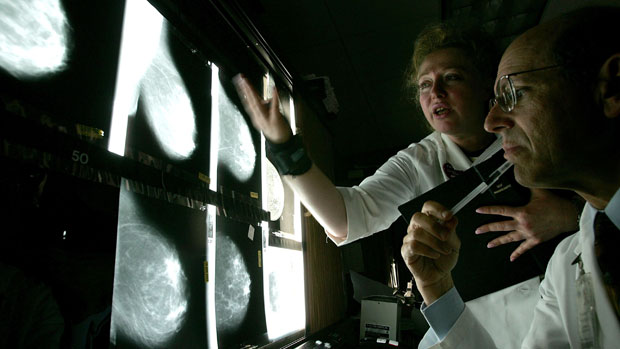‘Life-changing’ breast cancer drugs approved for NHS use
Thousands of women to have access to treatment that slows the advancement of the disease

A free daily email with the biggest news stories of the day – and the best features from TheWeek.com
You are now subscribed
Your newsletter sign-up was successful
Thousands of women will be given NHS access to two “life-changing” drugs used to treat breast cancer.
The National Institute for Health and Care Excellence (Nice) has approved the use of ribociclib and palbociclib on the NHS. The drugs can slow down advanced cancer for at least ten months while also delaying the need for chemotherapy.
Palbociclib was initially rejected because of its high cost, the BBC reports.
The Week
Escape your echo chamber. Get the facts behind the news, plus analysis from multiple perspectives.

Sign up for The Week's Free Newsletters
From our morning news briefing to a weekly Good News Newsletter, get the best of The Week delivered directly to your inbox.
From our morning news briefing to a weekly Good News Newsletter, get the best of The Week delivered directly to your inbox.
“One cycle of palbociclib - or 21 capsules - costs £2,950 for a pack of 21. For 63 tablets of ribociclib, the price is the same,” it says.
However, following price negotiations, 8,000 people in England will now have access to the medications.
Women with oestrogen-receptor positive breast cancer, diagnosed after the disease has spread, will be eligible for palbociclib, while those who meet the criteria and have gone through the menopause will be eligible for ribociclib.
“It's a life-changing drug for thousands of women and in years to come as well,” journalist Vikki Orvice, who was prescribed palbociclib for a two-year trial, told the BBC Radio 4's Today programme. “You get slight fatigue from it, but it was manageable and I was on the highest dose possible.
A free daily email with the biggest news stories of the day – and the best features from TheWeek.com
“No one looking at me would have known I was ill,” she added. “You have a quality of life with so few side effects.”
Baroness Delyth Morgan, chief executive of Breast Cancer Now, told The Guardian: “Around 8,000 women each year can now be given significant extra time before their condition progresses – time that will be truly invaluable to them and their loved ones.”
-
 Labor secretary’s husband barred amid assault probe
Labor secretary’s husband barred amid assault probeSpeed Read Shawn DeRemer, the husband of Labor Secretary Lori Chavez-DeRemer, has been accused of sexual assault
-
 Trump touts pledges at 1st Board of Peace meeting
Trump touts pledges at 1st Board of Peace meetingSpeed Read At the inaugural meeting, the president announced nine countries have agreed to pledge a combined $7 billion for a Gaza relief package
-
 Britain’s ex-Prince Andrew arrested over Epstein ties
Britain’s ex-Prince Andrew arrested over Epstein tiesSpeed Read The younger brother of King Charles III has not yet been charged
-
 A real head scratcher: how scabies returned to the UK
A real head scratcher: how scabies returned to the UKThe Explainer The ‘Victorian-era’ condition is on the rise in the UK, and experts aren’t sure why
-
 How dangerous is the ‘K’ strain super-flu?
How dangerous is the ‘K’ strain super-flu?The Explainer Surge in cases of new variant H3N2 flu in UK and around the world
-
 The ‘menopause gold rush’
The ‘menopause gold rush’Under the Radar Women vulnerable to misinformation and marketing of ‘unregulated’ products
-
 How the care industry came to rely on migrant workers
How the care industry came to rely on migrant workersThe Explainer Government crackdown on recruiting workers abroad risks deepening care sector crisis, industry leaders warn
-
 Could medics' misgivings spell the end of the assisted dying bill?
Could medics' misgivings spell the end of the assisted dying bill?Today's Big Question The Royal College of Psychiatrists has identified 'serious concerns' with the landmark bill – and MPs are taking notice
-
 Washwood Heath: Birmingham's pioneering neighbourhood health service
Washwood Heath: Birmingham's pioneering neighbourhood health serviceIn the Spotlight NHS England chair says there is a 'really good argument this is the model for the future'
-
 The UK's first legal drug consumption room
The UK's first legal drug consumption roomThe Explainer 'Potentially transformative moment in UK drugs policy' as The Thistle opens in Glasgow
-
 How can the UK solve the adult social care crisis?
How can the UK solve the adult social care crisis?Today's Big Question New commission announced to turn our buckling care sector around: yet more delay or finally a way forward?